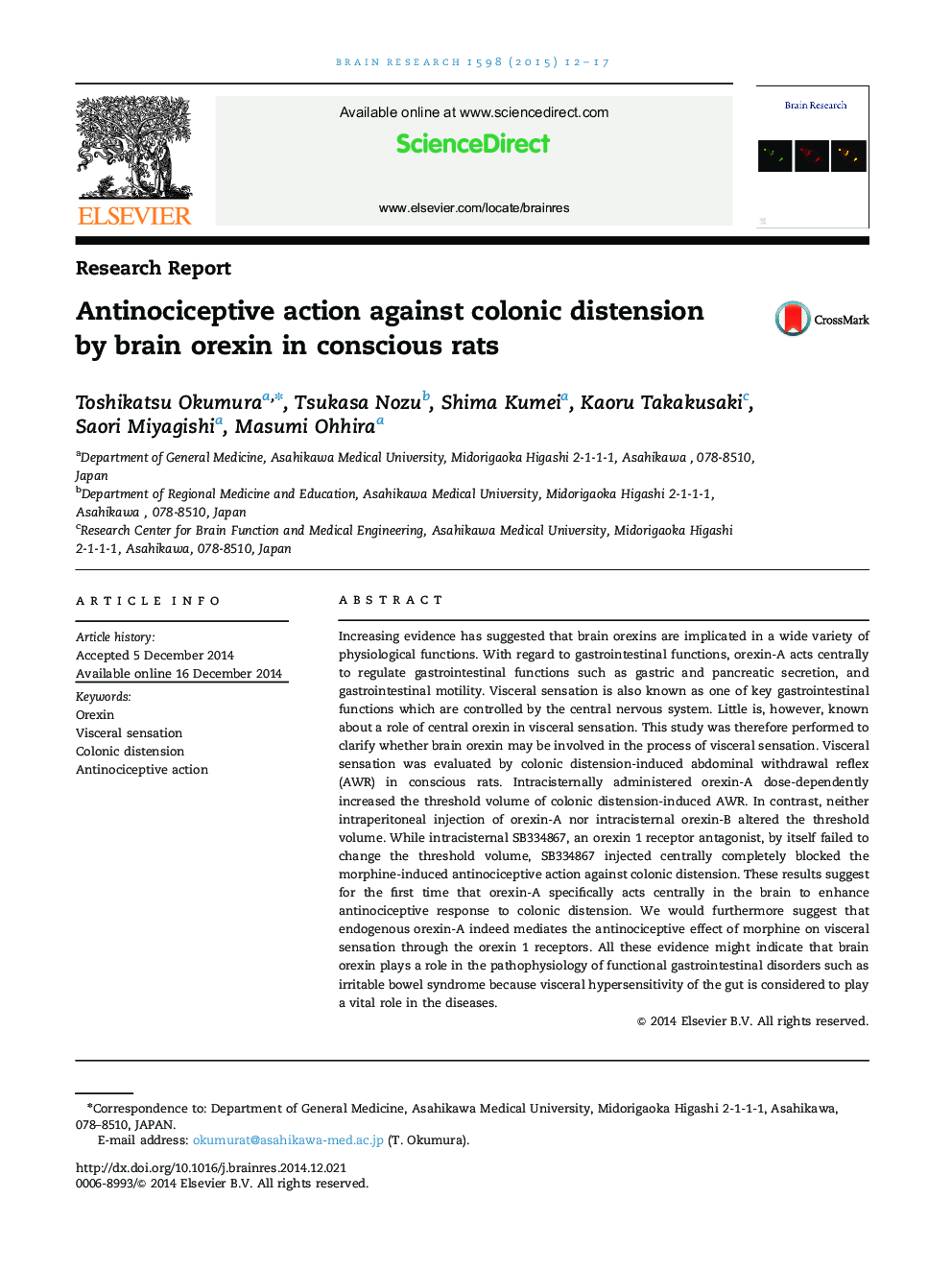| Article ID | Journal | Published Year | Pages | File Type |
|---|---|---|---|---|
| 4323959 | Brain Research | 2015 | 6 Pages |
•Visceral sensation detected by colonic distension-induced abdominal withdrawal reflex.•Intracisternal orexin-A induced an antinociceptive action against colonic distension.•SB334867 blocked the morphine-induced antinociceptive action.
Increasing evidence has suggested that brain orexins are implicated in a wide variety of physiological functions. With regard to gastrointestinal functions, orexin-A acts centrally to regulate gastrointestinal functions such as gastric and pancreatic secretion, and gastrointestinal motility. Visceral sensation is also known as one of key gastrointestinal functions which are controlled by the central nervous system. Little is, however, known about a role of central orexin in visceral sensation. This study was therefore performed to clarify whether brain orexin may be involved in the process of visceral sensation. Visceral sensation was evaluated by colonic distension-induced abdominal withdrawal reflex (AWR) in conscious rats. Intracisternally administered orexin-A dose-dependently increased the threshold volume of colonic distension-induced AWR. In contrast, neither intraperitoneal injection of orexin-A nor intracisternal orexin-B altered the threshold volume. While intracisternal SB334867, an orexin 1 receptor antagonist, by itself failed to change the threshold volume, SB334867 injected centrally completely blocked the morphine-induced antinociceptive action against colonic distension. These results suggest for the first time that orexin-A specifically acts centrally in the brain to enhance antinociceptive response to colonic distension. We would furthermore suggest that endogenous orexin-A indeed mediates the antinociceptive effect of morphine on visceral sensation through the orexin 1 receptors. All these evidence might indicate that brain orexin plays a role in the pathophysiology of functional gastrointestinal disorders such as irritable bowel syndrome because visceral hypersensitivity of the gut is considered to play a vital role in the diseases.
